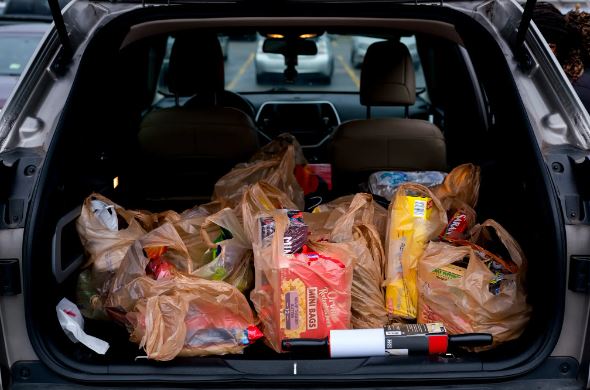As President Biden grapples with declining approval ratings amid persistently high inflation, his administration is turning its attention to pressuring large grocery chains to reduce food prices. Accusing these stores of generating excessive profits at the expense of consumers, Biden aims to address voter concerns about the soaring costs of essential goods. While inflation is showing signs of moderation, the impact of rising grocery prices remains a significant factor affecting Biden’s approval ahead of the 2024 election.
Biden’s public offensive, exemplified by recent remarks in South Carolina, signals a forthcoming push against grocery chains and companies maintaining higher-than-usual profit margins amid rapid price growth. The president has emphasized issues like price gouging, junk fees, greedflation, and shrinkflation, portraying these practices as detrimental to American consumers.
Economic research suggests that staples like eggs and milk, purchased more frequently than big-ticket items, play a pivotal role in shaping public perceptions of inflation. Prices for these items surged by over 11 percent in 2022 and 5 percent in the past year, contributing to the fastest burst of price increases in four decades. While the rate of increase is slowing, Biden remains attuned to the fact that grocery prices, a key concern for many families, continue to impact households.
Despite the desire to address grocery prices, administration officials acknowledge the complexity of the situation, particularly when supply disruptions are contributing to the inflationary pressures. Analysts believe there may be limited short-term policy responses to rapidly lower grocery prices.
The Federal Trade Commission is currently reviewing a proposed merger between grocery-store chains Kroger and Albertsons, with expectations of blocking the merger due to concerns about reduced competition and potential higher prices for consumers. However, blocking the deal might not directly address the current spike in prices.
In response to Biden’s increased focus on grocer profits, a Kroger executive welcomed the scrutiny and insisted that the merger would ultimately lower prices for consumers. The White House Council of Economic Advisers conducted an analysis indicating that large grocery retailers have increased their profit margins by about 2 percentage points since the pandemic’s onset, reaching the highest level in two decades.
While the analysis suggests a correlation between elevated profit margins and high food prices, other factors such as consumer demand and supply-chain disruptions also play a significant role. Research from the Federal Reserve Bank of Kansas City highlights strong job growth and wage gains as contributors to grocery price increases. Processed foods, especially items like candy bars, have seen significant price hikes.
The Biden administration has implemented measures to address supply-side issues contributing to grocery price pressures. The Agriculture Department has invested hundreds of millions of dollars to support the expansion of companies in the meatpacking industry. Additionally, adjustments to federal food assistance benefits, factoring in inflation, have increased the value of food stamps for many low-income Americans.
Despite these efforts, concerns remain about the impact on consumers who earn just enough not to qualify for food stamps. The Commission is also considering enforcement actions under the Robinson-Patman Act, a law dating back nearly 90 years that requires suppliers to offer the same terms to every retailer. Advocates argue that such enforcement actions could drive down prices at smaller grocers by ensuring they can purchase items at the same cost as large retailers.
Politically, big grocers present an appealing target for Biden as he seeks to address voter frustrations over rising prices. The administration is exploring ways to intensify pressure on large chains in the coming weeks and months. Biden’s remarks in South Carolina reflect a determination to address the concerns of Americans grappling with the impact of inflation on their daily expenses.
As the administration navigates the intricacies of addressing grocery prices, the broader implications of its efforts on economic policies and consumer sentiment remain central to the ongoing discussion about inflation and its political consequences.

